SearchNode publishes report on ecommerce trends 2020

What can we expect from the ecommerce industry in 2020? Ecommerce News Europe spoke with Antanas Bakšys, CEO and co-founder of Lithuanian tech company SearchNode, about the latest ecommerce trends.
Antanas Bakšys co-founded SearchNode in June 2013. Nordic Business Report called him one of the most promising entrepreneurs under the age of 25 in Northern Europe. SearchNode provides AI-powered search solutions for medium-sized and big ecommerce players. Among its customers are Decathlon (Poland), Hubo (Belgium), Phonehouse (Spain) and many others.
At the start of this year, SearchNode published an extensive report with the 22 Ecommerce Trends for 2020. We spoke with Antanas to find out what he thought about some of the survey findings.
One of the questions the nearly 160 decision-makers from big ecommerce companies got was “what ecommerce platform are you on now?”:
What could be the reasons more ecommerce companies are still using Magento 1 rather than Magento 2, which is already available since 2015?
“It’s quite surprising, but this should change soon. From the 1st of June 2020, Magento will no longer support Magento 1 platform. We see a trend that many companies who are using Magento 1 are currently moving to Magento 2 or other platforms. It’s a great chance to build a new website, with new functionalities and significant improvements. At the same time, something like this takes much effort and resources.”
Most companies (76 percent) want to improve personalization. What things do you think can be improved on this subject? What do ecommerce companies nowadays lack when it comes to personalization?
“It’s common for amateurs to think that a great personalization will come with a shiny tool. Especially if it costs a lot. It’s quite easy to differently target 30 or 50 segments. What is difficult and what most companies get wrong, is tailoring a message that truly resonates with those people you target. And in all channels, from the first ad to the checkout page.”
“That’s why I believe that the next two years will be about ecommerce professionals and their skills to strategize and build personalization efforts, with a support of great tools.”
The next two years will be about strategizing and building personalization efforts.
Site-search is also among the most popular things to implement, improve or change. What is, in your opinion, the current state of site-search on ecommerce websites?
“Usually, there are three types of companies to define a state of site-search. One type is the kind of company that uses open-source technologies like Elastic or Solr and just relies on their default configuration with a bit of development. Usually, these companies have a bad or very mediocre search experience. They lose lots of users and their money when customers don’t find what they are looking for.”
“Another type is those who use the same open-source technologies, but have a full-time search team of at least three to five experienced engineers and at least one product manager. Amazon, for example, has about 400 people in its search team. These companies usually have a mediocre or great search experience.”
“The last type is those who work with third party solutions. As there are tens and probably hundreds of companies providing search, we can find ecommerce sites from the very basic search experience to really advanced solutions.”
“So to sum up, the state of site-search is different, but in most cases far from perfect. This is also the reason why our business is growing.”
Site-search is in most cases far from perfect.
What should be improved then?
“Most of the advanced ecommerce companies nowadays are working on natural language understanding and data processing for search. Because it’s not enough that search has autocomplete, spellcheck and understands that ‘tomato’ and ‘tomatoes’ should find similar or identical products. It’s also not enough to add synonyms or manually adjust search results to search queries.”
“The difficult part is to truly understand a user’s query, its context and products’ data, to be able to find the most relevant products in the right order. As a quick example: when users search for a belt, they want to find belts, not dresses and pants with belts. Our CTO wrote an interesting guide about this, with the 14 ecommerce site search best practices for 2020.”
It’s quite surprising that ‘payments’ is in the top of the list. One might think most ecommerce companies have this part under control. Why is at number 4 on the list you think?
“It was a bit of a surprise for me as well. As I’m not a big expert in ecommerce payments, it’s worth studying this more. However, it might be similar to site-search, which from one point of view is well-known and developed for more than twenty years but many companies struggle with it, even if they had a ‘great’ search for over three years. The market and the users’ behavior and wishes are changing quite fast. So the companies should continuously improve. Payments are not the exception.”
Environmental sustainability is a hot topic in ecommerce. In your survey, many companies say they will use plastic-free packaging and efficient transportation to cut emissions. What can be further done in your opinion?
“It remains a tricky topic. For example, there are skeptics who generalize the whole retail industry, saying all are against the environment. In their opinion the more you buy, the more you pollute the earth. However, I think it’s impossible to turn a critical mass of people into such minimalists in today’s world, therefore I’m happy to see that ecommerce companies are actively thinking and acting to be environmentally sustainable. I noticed that it’s also a great marketing message.”
More ecommerce companies could accept their selling products for recycling or at least educate how purchased products could be recycled. Drones delivery should cut emissions if they replace trucks and cars. And so on.”
Here at Ecommerce News Europe, we have written many news articles about online retailers that have decided to become an online marketplace. It looks like a real trend. Why is this, you think?
“According to our survey, 21 percent are already marketplaces and 6 percent will become marketplaces in 2020. So almost a third of the medium to big ecommerce companies that we have questioned will be marketplaces.”
“It should be more profitable to open your platform to other sellers and take a commission from them. As many ecommerce companies already have a platform, user base and could predict sales, it’s not so difficult to turn this platform into a marketplace. What is difficult is to compete with other marketplaces and make sure your own products win when your users search for a product in the said marketplace.”
“However, I believe it’s a great opportunity for small businesses to use those platforms to sell more products, rather than trying to compete in this noisy market.”
Small businesses should join marketplaces rather than trying to fight them.
What does it say that organic search marketing still offers the best ROI for most ecommerce companies?
“It was a bit of a surprise for me as well. I always thought email marketing is the channel with the best ROI. But it looks like SEO is also profitable and that the long-term work companies do actually pays off. However, I’d be careful here and wouldn’t state that organic search marketing is the best ROI channel. Let’s say it’s one of the best channels.”
Only 31 percent of the surveyed companies are satisfied with their own site-search. Can you explain this?
“My guess is many fewer users would be satisfied with the site-search on ecommerce websites. Sometimes companies are just happy with their site-search, even though it sucks. As I explained earlier, many site-searches nowadays are not able to match a user’s query with the most relevant products. While searching for a belt, users find dresses and pants with belts. While searching for dog food, users get bowls for dog food. While searching for a Lenovo laptop with 16gb ram, users get 16gb ram parts, not laptops and so on.”
“The main challenges for the next few years are how companies will be able to process their products’ data, empower great search technology and build a continuous & scalable improvement process. It will require people who have great know-how in the ecommerce search area, not just shiny tools. This is what SearchNode is known for in the market.”
It’s about having great know-how in the search area, not about having shiny tools.
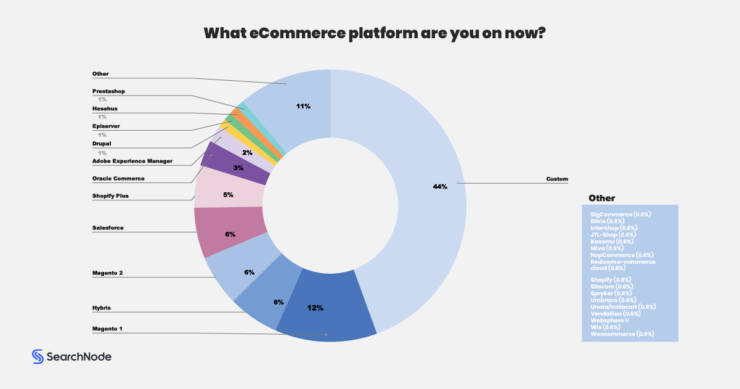
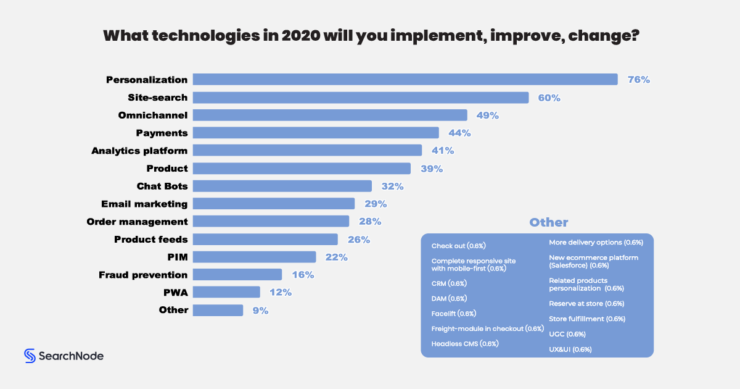
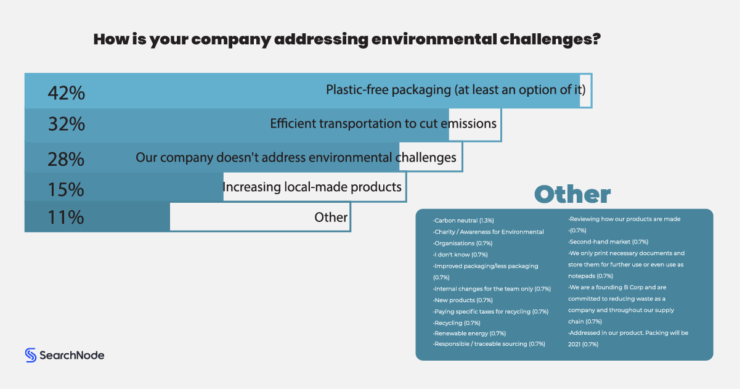
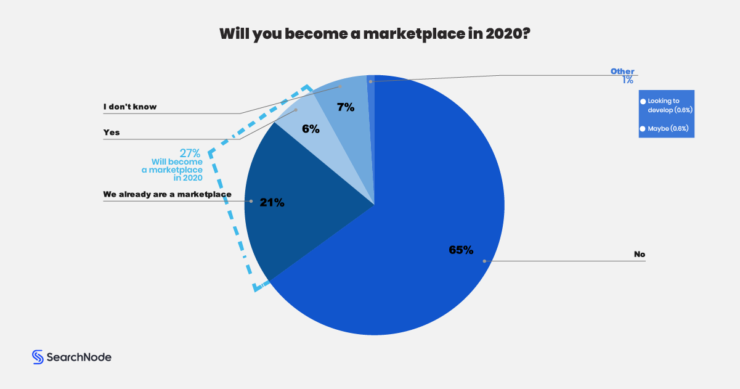
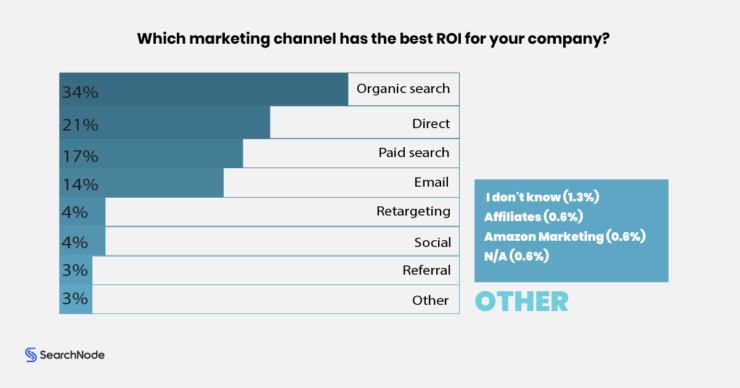

Comments